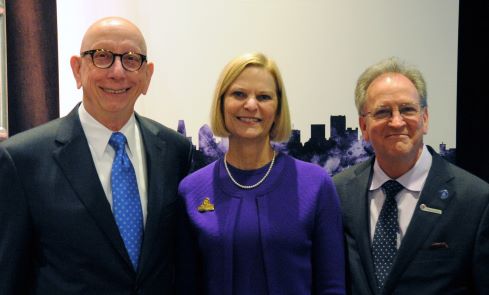Are You A Victim of Your Success Position Paper
Are you now, or are you about to become, a victim of your own success and your strongest traits responsible for that success? More than a few successful executives have fallen into this trap. It’s easy to do if you don’t stop and take stock occasionally,and look for the warning signs.
While it’s true that you probably should spend more time developing your strengths than trying to fix most weaknesses, strengths taken to extremes will work against you sooner or later.
CONFIDENT OR ARROGANT?
The CEO of a large, closely held family business had been hired by the family to help professionalize the business and allow it to grow to the next level. He had the industry experience, educational background and record of success that the business needed.And in fact, he did increase the top line and bottom line through the methods and systems he brought to the business. Over time, however, he saw a steady turnover in the company’s operations management position. At the same time, most members of his senior management team developed an increasing sense of frustration in trying to deal with him. He had a unique opportunity to receive anonymous feedback from an externally conducted survey of his people that raised issues regarding his team’s frustration with him. His direct reports described incidents where he dismissed their input with an “I know more than you do” attitude. They talked of his inability to really connect with them and show that he valued their contributions. In spite of this feedback, the CEO didn’t change the way he dealt with his people. They finally went over his head to the chairman/major shareholder and threatened to leave en masse if the CEO didn’t change or leave. The CEO is no longer with the company.
Why did this happen? This executive is extremely intelligent, with a strong drive to achieve. He is an extremely quick thinker and processes information very quickly. He’s very confident in his own knowledge and opinions and is quick and decisive in analyzing and dealing with problems. He let his confidence—a key strength that he brings to the table—become a weakness because he couldn’t moderate his behavior in a way that built support for his decisions. His people and the chairman saw him as arrogant and manipulative.
GOOD WITH DETAILS OR MICROMANAGING?
The Executive Director of a membership organization had spent two decades building the organization from its inception to a model that other groups admired. He developed a reputation as a “wheeler‐dealer” in the industry who could get things done. He was very good at developing relationships with key outsiders whose cooperation was essential for his organization. He had the ability to individually manage important details to control outcomes. His board marveled at the success he achieved with the limCopyright ited budget and personnel available. As the organization grew, the Executive Director had to hire staff to assist with the activities. He had a more difficult time covering all of the bases and getting his work done. His board became increasingly frustrated with lapses in communication from him to the board and between him and his staff.
This executive also was the beneficiary of confidential survey results. The surveys showed both the dissatisfaction of many board members with his performance and his underutilization of his people. He had the opportunity to take a good, hard look in the mirror and decide that he needed to make some changes, but he couldn’t or didn’t want to make a big enough change to make a difference. What had started as a strength—the ability to control the situation through his management of details—had become a weakness. His need to control and micromanage activities wouldn’t allow him to really manage the organization or lead his people appropriately as the organization grew. It became a career limiting attribute for him.
GETTING THE MESSAGE AND GAINING A REPRIEVE
Contrast the above situation with that of a CFO whose supervisor, the CEO, called us in for help. The CFO’s department had seen a good deal of turnover, including people who arguably should have or could have been significant contributors. The drama and trauma in his department was known throughout the organization. The surveys and interviews showed that the CFO was guilty of overplaying multiple strengths. He is an extremely intelligent, quick‐thinking person with great technical skills and a lot of self confidence. He also can tightly control projects and stay on top of critical technical details.
By the time we were called in to assist him, he had taken both of these strengths to extremes and was in danger of losing his job. After receiving the feedback from the interviews and surveys, he initially denied that it could be true, but did come around to recognize that he had some problems to address. He embraced the need for change with humility and zeal, and began making improvements almost immediately. He took advantage of the feedback and altered his behaviors to be even more successful.
THE BOTTOM LINE
Executives bring multiple talents and some key strengths to the job that allow them to be successful. Strengths taken to extremes can become weaknesses, but it doesn’t have to happen that way. With some introspection and quality feedback, you can avoid these types of problems. It’s up to each of us to identify that fine line where a strength becomes a hindrance.
Dom Cingoranelli, CPA, CMC assists organizations in improving their competitive positions through his work in growth, strategy and performance issues.
| File |
|---|
| Are You A Victim of Your Success Position Paper.pdf |

